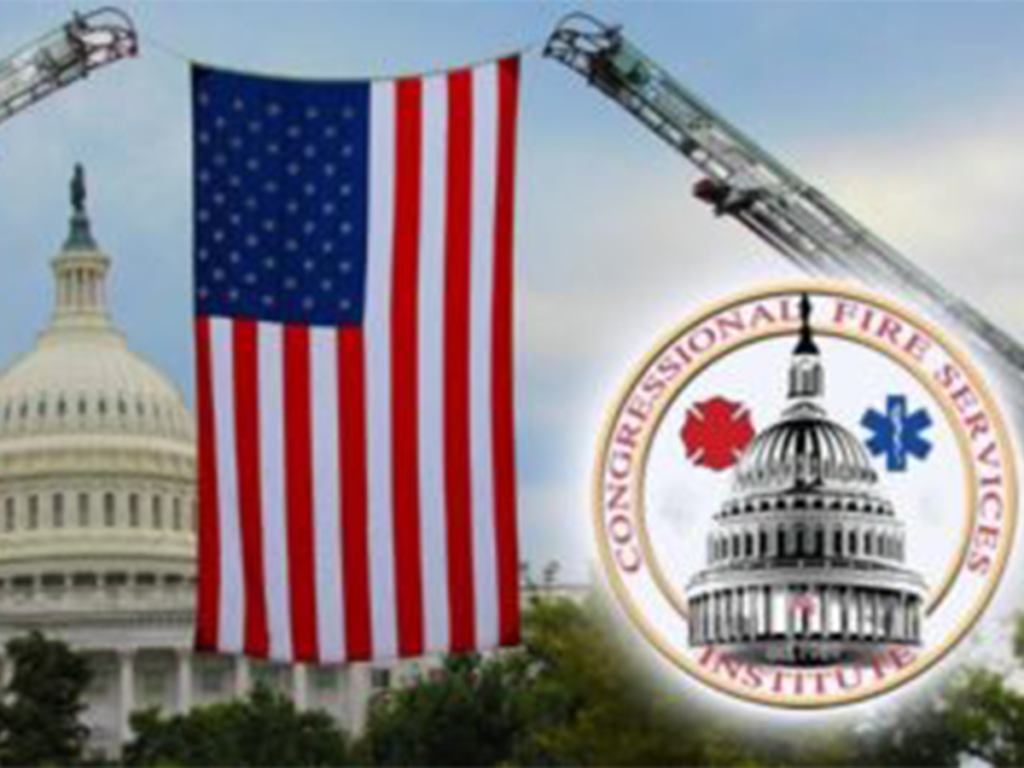Like you and your colleagues, the Congressional Fire Services Institute (CFSI) staff continues adjusting to the pandemic’s numerous challenges to continue their work on behalf of our nation’s fire and emergency services. As the person who oversees the budget, it is frustrating to sign the monthly checks for rent, utilities, and other office expenses while the staff is working remotely from their respective domiciles. But such is life during the pandemic. Despite the challenges, we continue advocating to our federal legislators the needs of our nation’s firefighters and emergency services personnel – and as we all know, there are many needs.
On Capitol Hill, Congress is in the process of advancing appropriations legislation to provide new funding for federal programs for the next fiscal year that begins on October 1. The likelihood of approving these measures on schedule is dim, given the different spending priorities between the Democratic-controlled House and the Republican-controlled Senate. In addition, White House and Congress continue negotiations on COVID-19-related spending that would include additional funding this fiscal year for the fire service. While these discussions are taking place, CFSI and the other national fire and emergency services organizations continue advocating for increased support for federal fire programs – most notably, AFG, SAFER, and the United States Fire Administration.
At the start of the year, I could not have explained what Zoom meant as a computer application. But as we all know, it has now become the primary means by which we communicate our messages. Last month, we conducted a Zoom meeting with a panel of fire service leaders and congressional staff. The focus of the meeting was to outline the key challenges facing the fire service during the pandemic – challenges that included the lack of PPE and masks, and the financial hardships of fire and emergency services departments due to the pandemic. And on August 6th, CFSI conducted a webinar on Wildland Urban Interface fires for congressional staff. Our speakers included representatives of the International Association of Fire Chiefs, International Association of Wildland Fire and the National Fire Protection Association, and International Code Council.
Since the pandemic was declared in March, CFSI has been communicating to our federal leaders the need for increased federal support for our first responders. We have developed white papers and co- signed letters to Administration officials and congressional leaders outlining concerns with the lack of federal resources for the fire and emergency services. We are not competing against public health for access to the limited supply of protective gear; instead, we are making the case that fire and emergency services personnel are also on the front lines of the battle against COVID-19, and therefore, need the right equipment to safeguard themselves from the disease.
Our primary mission in Washington, DC, is to educate members of Congress – educate them about the fire and emergency services and the role it plays in protecting our homelands. We might ask ourselves whether we are appropriately describing what we actually do when we continually refer to the profession as the “fire” service and the 30,000 departments across the nation as “fire” departments. While we pride ourselves on tradition, we must think about how the mission of first responders has evolved over time — and we must convey to our elected officials and the public how our roles have changed. We are all-hazards emergency responders who require new levels of training and new technologies to perform an expanded mission.
In less than four months, we will be casting our ballots for President, 435 House of Representative seats, and 35 Senate seats. Two months later, the winning candidates will be sworn into office. That is when CFSI and the other national organizations will begin sharing their legislative priorities with members of the 117th Congress. But we will need the active support of local, state, and national fire and emergency services officials to help us in our efforts.
We need to ensure that elected officials have a clear understanding of our expanded role in public safety overall. And drawing from the lessons learned from the pandemic, we must convey how our needs have increased since the pandemic. We need an abundant supply of N95 masks, PPE, and vaccinations for all our personnel. We need federal officials to recognize that our members are serving on the front lines with public health responding to the pandemic – and the health and safety of our members must be a high priority in the development of national policy. We need a seat at the table whenever federal agencies develop policies and protocols that address the allocation of federal funding and supplies for state and local agencies responding to the pandemic.
CFSI will continue serving its mission to ensure that members of Congress understand the challenges facing the fire and emergency services. We can serve that mission with your support. If you ever have any questions about the issues we are addressing on Capitol Hill, please let us know.
On behalf of our Board of Directors and staff, I urge you to stay safe!
CFSI National Advisory Committee Conducted Virtually
On May 1, the CFSI National Advisory Committee conducted its annual spring meeting. Over 50 NAC representatives participated in the virtual meeting chaired by Chief Greg Cade, NAC chairperson.
The agenda included presentations by the CFSI staff and representatives of both Anheuser-Busch and FirstNet. While the staff focused their remarks on issues related to the cancellation of the symposium and dinner program, in addition to their ongoing work on Capitol Hill, representatives of Anheuser-Busch and FirstNet delivered updates on the Anheuser-Busch Emergency Drinking Water Program and the nationwide public safety broadband network, both of which are supported by CFSI.
During the meeting, NAC members approved three resolutions calling on CFSI’s support for specific public safety issues. These issues address:
- Recognition of up-to-date national, consensus-based, building codes that promote fire and life safety while supporting housing choice and affordability.
- Support of federal agency and congressional actions that increase funding and support for fire prevention.
- Recognition of the essential services that building and fire prevention departments provide and supporting investments that permit these departments to enforce building and life safety codes remotely.
At the conclusion of the meeting, Ron Siarnicki, Executive Director of the National Fallen Firefighters Foundation, was elected NAC Chair, and Craig Hannan, Director, IFSTA/Fire Protection Publications, was approved as Vice Chair. The next NAC meeting will take place in the Fall.
Fourth Covid-19 Package at an Impasse
In May, the House passed a $3.1 trillion COVID-19 bill, the HEROES Act (H.R.6800) while the Senate Republican leadership recently released its own measure, the HEALS Act, that would authorize approximately $1 trillion in relief spending. Attempts between the White House and Democratic leadership to negotiate a compromise on spending have reached an impasse, prompting President Trump to sign an executive order on August 8 to attempt to mitigate the financial impact of the pandemic. Questions have been raised on Capitol Hill, however, about the legality of the executive actions.
Despite the current stalemate in negotiations on the HEALS Act and the HEROES Act, CFSI remains focused on the provisions in both bills that contain funding to benefit fire departments. In particular, the HEROES Act contains $500 million in supplemental funding for both the Assistance to Firefighters Grant (AFG) program and the Staffing for Adequate Fire and Emergency Response (SAFER) program. The HEROES Act also includes certain waivers to allow the AFG and SAFER programs to waive cost-sharing requirements, use SAFER funds to retain and rehire firefighters, and more.
While the HEALS Act contains an additional $365 million for both AFG and SAFER, the initial bill does not contain any waivers. CFSI continues to work with the House and Senate Appropriations Committees, House and Senate Leadership, and members of the Congressional Fire Services Caucus to advocate for these provisions in any upcoming COVID-19 legislation.
As the larger COVID-19 package is being negotiated, the House has also been working on moving other legislation through the committees. Of note, the House Energy and Commerce Committee held a markup on July 15, 2020, where the committee favorably reported two bills of importance to the fire service: the Helping Emergency Responders Overcome (HERO) Act (H.R.1646) and the Don’t Break Up the T-Band Act (H.R.451).
The HERO Act provides funding for peer counseling programs for public safety officers, and collects data on post-traumatic stress among public safety officers to assist in developing best practices and improving measures to recognize, prevent, and treat mental health issues among public safety officers. The Don’t Break Up the T-Band Act would repeal the T-Band auction requirement and ensure local first responders in the affected municipalities will continue to have the ability to communicate during emergency operations. CFSI was pleased to see that both bills were reported favorably out of committee and may now receive a vote on the House floor.
CFSI will continue to advocate for these bills and others that support the fire and emergency services.








